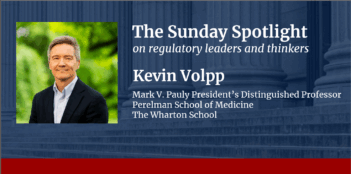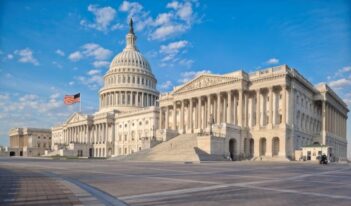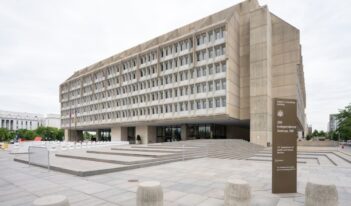
Scholars reflect on the continuing impact of the No Surprises Act.
In an effort to protect patients from unexpectedly high medical bills for emergency services and certain non-emergency services from out-of-network providers, Congress enacted the No Surprises Act on December 27, 2020. Because patients often cannot choose their provider in emergencies, they may unknowingly receive care from an out-of-network provider and face large bills when insurers refuse to cover the full amount. The Act seeks to limit these surprise bills by requiring insurers to cover emergency services when a patient is unable to give authorization for out-of-network treatment. The Act also requires medical providers to give a good-faith estimate of the cost of services to uninsured patients upon request.
To resolve payment disputes between insurers and out-of-network providers, the Act directed the U.S. Department of Health and Human Services (HHS) to establish a binding arbitration system called Independent Dispute Resolution (IDR). If negotiations fail, each party submits a proposed payment amount and an arbiter must choose one—no compromise amount is permitted. In making this decision, the arbiter must consider several factors, including the qualifying payment amount, which is the insurer’s median in-network price for the service in that geographic area.
IDR, despite being intended as a fallback, has become much more popular than HHS anticipated. Since the IDR portal launched on April 15, 2022, more than 3.3 million disputes have been initiated, far exceeding HHS projections. In the first four months alone, parties filed over 46,000 disputes. Providers not only initiate the majority of filings, but also win the majority of decisions. In 2024, providers won approximately 85 percent of resolved cases, often securing awards more than 300 percent above the qualifying payment amount. Private equity–backed provider groups have been especially successful, winning nearly 90 percent of their cases.
The overwhelming volume of disputes has incurred significant administrative costs and continues to cause cases to exceed statutory timelines. The IDR process has been paused multiple times to address legal challenges and regulatory updates. Critics note that providers, particularly those backed by private equity firms, are strategically exploiting the system by filing disputes in bulk to pursue higher reimbursement rates. In addition, provider groups have filed close to 30 lawsuits challenging key provisions of the No Surprises Act.
Some scholars warn that the burden of arbitration may ultimately increase health care costs for patients. Insurers may raise premiums to offset arbitration losses, while hospitals and physician groups appear to be increasing sticker prices as leverage in future disputes. Although the NSA has succeeded in limiting direct surprise bills, its long-term impact on overall health care affordability remains uncertain.
In this week’s Saturday Seminar, scholars explore how the health care sector is responding to the No Surprises Act.
- Although the No Surprises Act aims to address surprise billing, the underlying structure of the U.S. health care system and the complications of the arbitration process continue to present challenges for stakeholders, argues Cristian Lieneck of the Texas State University School of Health Administration and several coauthors in a paper. The Leineck team observes that the U.S. health care industry continues to face significant challenges with billing following the No Surprises Act’s passage due to the fragmentation of care delivery. Leineck and his coauthors contend that surprise medical bills will persist as long as medical providers are categorized as being in or out-of-network. The Lieneck team recommends that policymakers continue to amend and adapt the No Surprises Act as new challenges arise.
- In an article in the Brookings Institution, Matthew Fiedler and Loren Adler of the Brookings Institution’s Center on Health Policy analyze IDR data under the No Surprises Act and discuss its implications for healthcare prices and insurance premiums. Fiedler and Adler highlight that median arbitration awards for emergency, imaging, and critical care services exceed Medicare rates by at least 3.7‑fold and surpass historical in‑network commercial prices by 50 percent. Fiedler and Adler warn that these higher out‑of‑network awards may translate into upward pressure on in‑network contract negotiations, driving up premium costs. Fiedler and Adler contend that this outcome contradicts congressional intent to reduce financial burdens on patients and stabilize insurance markets, indicating a need to reassess the No Surprises Act’s arbitration framework.
- In an article in Stanford Law Review, Erin C. Fuse Brown of Brown University and Mark A. Hall of Wake Forest University School of Medicine evaluate the harms of private equity in health care. Brown and Hall explain that private equity investment is concerning because private equity firms prioritize quick profits over patient care, and can profit by finding and exploiting market vulnerabilities, such as surprise out-of-network billing. Brown and Hall argue that immediate regulatory intervention is needed to stop these exploitative practices. Although Brown and Hall acknowledge the No Surprises Act as a step forward, they highlight how private equity-backed provider groups have resisted the law’s implementation and aggressively use its arbitration process to preserve profits through high awards.
- The No Surprises Act is unlikely to increase health care costs, argues Christopher Garmon of the University of Missouri Bloch School of Management and several coauthors in a forthcoming article. The Garmon team explains that the No Surprises Act employs an IDR process that is similar to several state laws. Garmon and his coauthors caution against forecasting the impact of the NSA by comparing the effects of similar state statutes, given the small number of comparable existing studies. Maintaining that no state law has an identical process to the NSA, the Garmon team concludes that the IDR process employed here is unlikely to be inflationary given the lack of robust evidence of price changes relative to jurisdictions that do not use IDR.
- In an article in the Scholarly Commons @ UNLV Boyd Law, David Orentlicher of the William S. Boyd School of Law, Kyra Morgan of the Nevada Department of Health and Human Services, and Barak Richman of Duke University School of Law propose a common law contract framework to constrain excessive out‑of‑network hospital charges. They urge courts to cap hospital charges at the reasonable value of services and to replace inflated chargemaster rates with market‑based benchmarks. The authors critique the No Surprises Act as too narrow and argue that its arbitration process may not realign prices with fair market values. By grounding price limits in established contract doctrines, the authors contend that this approach can curb hospital price gouging and contain healthcare spending.
- In an article in Mitchell Hamline Law Review, Madeleine Amick-Kehoe of Mitchell Hamline School of Law argues that the No Surprises Act’s arbitration process disadvantages medical providers and may violate their constitutional due process rights. Amick-Kehoe contends that the binding arbitration system is potentially unconstitutional because it deprives providers of “traditional due process by jury trial.” Amick-Kehoe emphasizes the lack of an obvious mechanism to appeal or challenge an arbitrator’s decision, which she argues further undermines due process. Amick-Kehoe concludes that the Act fails its primary goal of protecting patients because its costly and one-sided arbitration framework could increase health care costs.
The Saturday Seminar is a weekly feature that aims to put into written form the kind of content that would be conveyed in a live seminar involving regulatory experts. Each week, The Regulatory Review publishes a brief overview of a selected regulatory topic and then distills recent research and scholarly writing on that topic.



